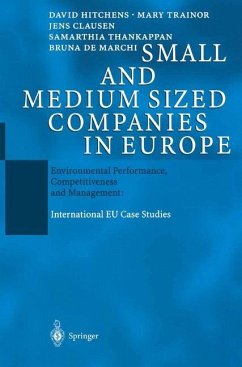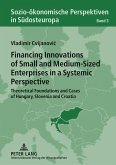1. 1 Aims and Objectives The major aim of this research is to identify and weigh the importance of factors that promote and constrain, the adoption of environmental initiatives by small and medium sized enterprises (SMEs). The objective is to inform how policy can overcome obstacles so as to promote the adoption of cleaner technology (includ ing environmentally sensitive products (Oosterhuis et al. 1996)) by industry. Cen tral to the research is the testing of a set of hypotheses, which, inter alia, relate the adoption of cleaner technologies to competitiveness, management culture and the importance of the provision of information. The manufacturing sectors consid ered are those dominated by SMEs where product and process environmental re sponse by the firm is important. Of these sectors, furniture, textile finishing, and fruit and vegetable processing were chosen. More specifically the focus is on European SMEs i. e. those employing less than 250 employees. ' Variations within the EU with respect to environmental regulation are exemplified by a study of firms (and plants) across four member states: Germany, North-east Italy, Republic of Ireland and the United Kingdom. The adoption of clean technologies has been slow and uneven and action has mainly involved good housekeeping. Major changes involving large capital spend ing, or material substitution, process redesign or reformulation have been rela tively rare (OECD 1985, 1995; Ashford 1993). The problem is particularly acute amongst SMEs (and the majority of enterprises are SMEs; e. g.
Bitte wählen Sie Ihr Anliegen aus.
Rechnungen
Retourenschein anfordern
Bestellstatus
Storno








